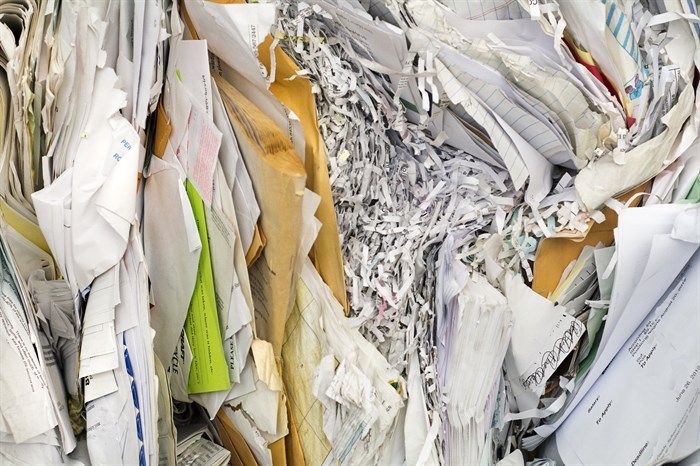
Contaminated recycling is a growing problem in the Central Okanagan.
Image Credit: ADOBE STOCK
August 15, 2018 - 3:00 PM
KELOWNA - Do you throw cartons of sour milk or half-filled tins of tuna right into your recycling bin? You’re doing it wrong. How about that old plastic lawn chair and camping tarp? Wrong. If you’ve run out of room, do you throw that last bag of garbage into recycling? Definitely wrong.
However waste reduction facilitator Cynthia Coates says all that and more can and does end up in the recycling bins of Central Okanagan residents, driving up costs by making sorting much more expensive and adding to the growing problem of load contamination.
“We are at a contamination level of 15 per cent (in residential recycling) and Recycle B.C. wants it at three per cent,” Coates says.
Exceeding that contamination level increases the difficulty in selling the product overseas.
China, the world’s primary destination for recycling, has recently clamped down on the level of contamination its recyclers are willing to tolerate, Coates says.
“They want 0.1 per cent and less than one per cent is very difficult with the way we collect our recycling,” she adds.
That has lead to an estimate by one industry insider of some 500 tonnes of unwanted, contaminated co-mingled waste sitting in the storage facilities of some Central Okanagan waste haulers.
Coates can’t confirm the number but concedes several of the big waste haulers have had contamination problems with recycling collected on contract for commercial, retail and industrial customers.
The co-mingled cart system used in the Central Okanagan for residential collection, where everything is dumped in one cart and wheeled to the curb, is much more vulnerable to contamination than the box-and-bag system used in other places like Vancouver, Coates says.
While she’s not sure of the cost, Coates says a system like Vancouver that asks homeowners to pre-sort and involves a human monitor leads to a much lower contamination rate and fewer problems downstream selling the product.
“It’s much easier to monitor when there’s human intervention. There’s one more step, one more opportunity for education and the resident gets immediate feedback. They know right away what they can and can’t recycle,” Coates says.
However, Coates admits the Central Okanagan is heavily invested in its current cart program and unlikely to suddenly change direction.
That leaves education as the Waste Reduction Office’s primary tools to fight load contamination. That includes a boots-on-the-ground program where an inspector will go ahead of the recycling trucks and examine loads for contamination.
A bad load might earn the homeowner an “Oops” sticker reminding them of the guidelines, Coates said, while a more serious infraction merits a sterner response.
“We will sometimes leave the cart behind if it’s bad enough,” Coates says.
The program has seen some success, Coates says, with a notable reduction in the number of Oops stickers in neighbourhoods where inspectors are going through a second time.
Coates says the world’s recycling industry has gone through similar times where markets were tight but says it’s better to change our habits now instead of relying on everything going back to the way it was.
To that end, she urges all Central Okanagan residents, even those who are long-time avid recyclers, to refresh themselves over what is and isn’t allowed in recycling bins.
For a comprehensive list, Coates suggests downloading the Central Okanagan Regional District’s My Waste app here.
To contact a reporter for this story, email John McDonald or call 250-808-0143 or email the editor. You can also submit photos, videos or news tips to the newsroom and be entered to win a monthly prize draw.
We welcome your comments and opinions on our stories but play nice. We won't censor or delete comments unless they contain off-topic statements or links, unnecessary vulgarity, false facts, spam or obviously fake profiles. If you have any concerns about what you see in comments, email the editor in the link above.
News from © iNFOnews, 2018